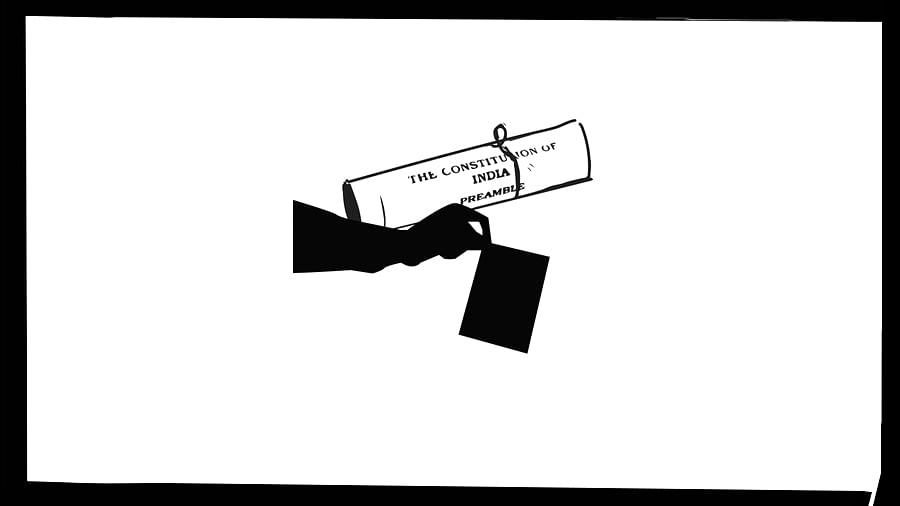
John William Gardner (1912-2002), an intellectual and public servant extraordinaire, was the US Secretary of Health, Education and Welfare from 1965 to 1968 and helped implement the Great Society programme of President Lyndon Johnson. This article is a reflection on his thesis on “Unloving Critics, Uncritical Lovers” (UCUL), articulated in 1968, and its relevance today not only in the US but also in India.
In his celebrated commencement address at the Cornell University in June 1968, Gardner imagined how scholars in the 23rd century may look back on the state of affairs in the world in 1968 and observed: "... They pointed out that twentieth century institutions were caught in savage crossfire between uncritical lovers and unloving critics. On the one side, those who loved their institutions tended to smother them in an embrace of death, loving their rigidities more than their promise, shielding them from life-giving criticism. On the other side, there arose a breed of critics without love, skilled in demolition but untutored in the arts by which human institutions are nurtured and strengthened and made to flourish. Between the two, the institutions perished.
“The twenty third century scholars understood that where human institutions were concerned, love without criticism brings stagnation, and criticism without love brings destruction. And they emphasised that the swifter the pace of change, the more lovingly men had to care for and criticise their institutions to keep them intact through the turbulent passages.
“In short, men must be discriminating appraisers of their society, knowing coolly and precisely what it is about the society that thwarts or limits them and therefore needs modification. And so must they be discriminating protectors of their institutions, preserving those features that nourish and strengthen them and make them more free. To fit themselves for such tasks, they must be sufficiently serious to study their institutions, sufficiently dedicated to become expert in the art of modifying them.”
Gardner’s ideas were first expounded in 1968, which was no ordinary year. There were widespread protests against the Vietnam war in the US. Martin Luther King Jr., and Robert Kennedy were assassinated in quick succession. In November, Richard Nixon ran on a platform of law and order and patriotism to become US President.
However, Gardner was not merely reflecting on political turmoil in the US in 1968. He imagined what 23rd century scholars may observe and warned students that the current trends, if left unchecked, would lead to the destruction of institutions. He also combined his far-sighted vision with an action agenda on what must be done in the now to prevent the dystopia from coming about.
23rd century India
In India, the UC and UL binary becomes desh drohis and desh bhakts. Since 2022, following the Prime Minister’s Independence Day address, the ruling party in India is fixated on Amrit Kaal, and his vision for a ‘New India’. In the hype created, these look seductively feasible. It is impossible to challenge predictions over a long time horizon when there are so many imponderables. Hence it behoves concerned citizens to examine if the vision is consistent with the trajectory on which India has embarked in the last decade.
Here, it is useful to follow Gardner and situate ourselves not in 2022 or even 2047 but in the 23rd century and wonder how institutions that have built India and sustained it might look like then. In this view, will India re-emerge as a less-flawed, multi-party Westminster-style democracy or a stunted presidential polity, with states considerably weakened in terms of bargaining power and status? Will parliament be a vibrant forum for the exchange of ideas, criticism and oversight or will it be further marginalised? Will multi-party politics survive or one-party rule prevail both by design and default? Will the Supreme Court assert itself and restore public confidence in the ability of the higher judiciary to intervene in time to safeguard their rights and interests? How will institutions like the Election Commission, CAG, CBI be restructured and governed? Will freedom of the media be restored in letter and spirit? Beyond the amendments to the various legal codes already proposed, will there be a complete overhaul of the justice system with a fair and justiciable balance between the security concerns of the nation and the survival issues of ordinary citizens? Will we be merely a developed country according to some metric or a truly ‘emancipated’ nation liberated from our prejudices based on caste, creed, gender and superstition? Will India have become a significantly less unequal society by design?
One can expand this list of questions to cover other facets of India in the 23rd century, including whether it will survive as ‘New India’ or Naya Bharat or fall apart due to the political incompatibility of various regions or deliberate polarisation of society along the lines of bhakts and drohis.
The Antidote
To end the UC-UL confrontation, Gardner urges citizens to become “discriminating appraisers of their society” and equally “discriminating protectors of their institutions”. He urges them to be “sufficiently serious to study their institutions” and “sufficiently dedicated to become expert in the art of modifying them.” Beyond the blame game of electoral politics, Gardner’s sage advice of ‘Modify, not Destroy’ (modify, not ‘Modi-fy’, to be clear) is what we Indians must take to heart. Will the Prime Minister himself lead this project and will his own party and the Opposition support his effort? Sadly, it appears that we cannot be sanguine either about our leaders or their followers.
Gardner’s thesis is often reduced to this quote: “Pity the leader caught between unloving critics and uncritical lovers.” He, of course, assumed that leaders will not themselves foment either the polarisation or the ensuing crossfire. As that becomes increasingly the case in India and elsewhere, the leaders are more to be censured than pitied.
(The writer is a retired IAS officer)